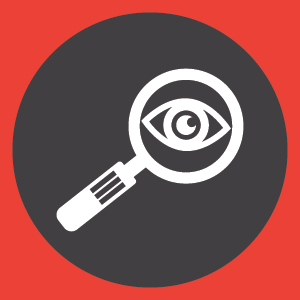Arkansas lawyer is reprimanded over use of private investigators who misrepresented themselves

Updated: An Arkansas lawyer has been reprimanded in South Carolina for sending private investigators into the state to pose as customers and gather evidence of intellectual property infringement.
The South Carolina Supreme Court reprimanded lawyer Cecil Duff Nolan Jr. in a Feb. 15 opinion (PDF), the Legal Profession Blog reports. Nolan had admitted misconduct and agreed to accept an admonition or public reprimand.
Nolan had hired the investigators in connection with a suit he filed alleging that a South Carolina business was selling a product that infringed the intellectual property rights of his client, according to the opinion.
The investigators made false statements to the employees of the business “and used tactics designed to prod the employees into making statements about the product,” the opinion said. The conversations were tape-recorded without notice to the employees.
At the time, Nolan “was unaware that secret tape-recording, pretexting and dissembling were in violation of the South Carolina Rules of Professional Conduct,” the opinion said. Applicable rules included a bar on conduct involving dishonesty, fraud, deceit or misrepresentation; and a ban on conduct that is prejudicial to the administration of justice.
Nolan says in a press release that he sent his investigator into South Carolina solely to gather evidence prior to litigation.
In an email to the ABA Journal, Nolan said the South Carolina ethics opinion represented the minority view with its “blanket prohibition on private investigators recording in intellectual property cases like ours.” His actions were appropriate under the law of Georgia, where the case was originally filed before its transfer to South Carolina, he said. In addition, a federal court judge had ruled that Georgia law controlled the case, he said.
South Carolina cases cited in the ethics opinion “totally ignore” a current ABA opinion on recording and are based on “an ancient ABA ruling” that involved a lawyer recording a judge, he added.
Nolan’s press release says Georgia law allows recordings as long as one party to the conversation consents. He also cites the later ABA ethics opinion, Formal Ethics Opinion 01-422, which, according to Nolan, “concludes that there is no ethical problem regarding undercover investigators under any applicable ethical rule to secure facts and information in order to make a determination as to the existence of violations of a law.”
It would be “absurd,” Nolan wrote in the release, to believe that anyone would sell a product violating intellectual property rights to the lawyer for the holder of the IP rights. And recording undercover investigators sent to gather evidence is beneficial, he said.
“Recordings are a security from later twisted recollections of the events that took place,” he said in the release. “It seems nonsensical that in light of the circumstances involved in intellectual property rights and patent protection, one would take offense to the use of modern technology to enhance memory at a trial which could be years from when the actual investigation took place.”
He added that he hired D. Cravens Ravenel, former chairman of the South Carolina Supreme Court Committee on Character and Fitness, to review the undercover investigation. Ravenel stated under oath that, in his opinion, “plaintiffs’ counsel who made the decision to protect his client’s intellectual property acted reasonably and with the weight of authority supporting his decision.”
Updated on Feb. 22 to include comments by Nolan.



